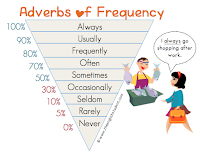Practical Grammar
The Second Year of Studies
ІІI
semester
1. Morphological, syntactic and semantic
characteristics of the Noun.
2. Semantic classification of nouns.
3. Morphological classification of nouns.
4. Grammatical categories of the Noun.
5. The category of number of nouns.
6. The category of case of nouns.
7. The Adjective:
morphological, syntactic and semantic features.
8. Comparative and Superlative forms of adjectives.
Comparative patterns.
9. Personal, reflexive, possessive Pronouns: common features.
10. Interrogative, relative, conjunctive pronouns.
11. Demonstrative, indefinite, quantifying pronouns.
12. The Adverb:
semantic groups. Degrees of comparison.
13. The Numeral:
cardinal and ordinal. Fractions and decimals. Dates spelling.
14. Attitudinal stance adverbials as markers of
speaker’s or writer’s attitude to a clause. Epistemic, attitude proper and
style adverbials.
15. The Preposition.
The Particle.
16. The Conjunction:
coordinators and subordinators.
17. The Gerund:
nominal and verbal characteristics.
18. The gerund: functions in the sentence.
19. Non-finite constructions with the gerund.
20. The gerund and participle I compared.












